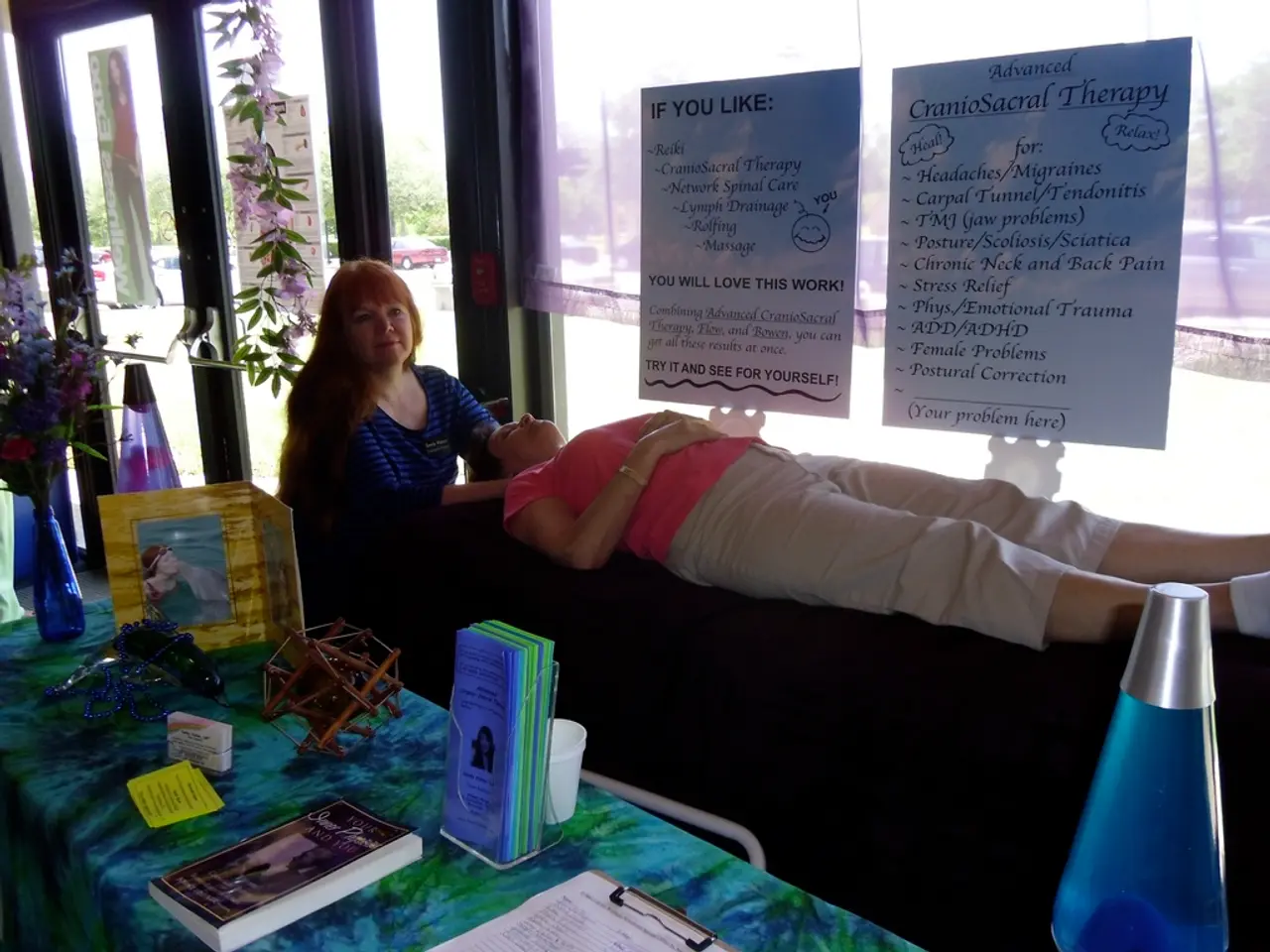The Enriching Impact of Hands-on Healing: Exploring Mental Health Benefits from Massage Therapy
In the hustle and bustle of modern life, finding time for self-care can be a challenge. But for one individual, the journey towards personal growth began with a simple massage session.
During the initial session, the therapist's expert hands worked through the author's shoulder and neck tension, unravelling knots that had long been a source of discomfort. This was just the beginning of a lifelong journey filled with opportunities for growth.
The author found massage therapy to be a gateway to self-care and personal growth. Each session served as a sanctuary of peace, providing emotional relief that sparked moments of clarity and hope. The author believes that massage therapy can foster a shift towards greater mental wellness collectively.
Massage therapy is not just about alleviating physical discomfort; it's an emotional reset that serves as a gentle reminder to slow down and take a breath. This holistic approach to well-being is particularly relevant in today's fast-paced world.
The emotional and social benefits of massage therapy extend beyond alleviating physical discomfort. Improved mood, reduced anxiety and depression symptoms, enhanced stress management, and better emotional balance are just some of the benefits that the author has experienced.
Specifically, massage therapy has helped the author handle pressure and mental stress better, leading to greater emotional resilience. It has also reduced anxiety and depression symptoms, supporting emotional well-being even without a clinical diagnosis. The therapy has enhanced the author's mood and increased energy levels, contributing to overall better mental health and quality of life.
Moreover, massage therapy promotes better sleep quality through relaxation and pain relief, which positively affects emotional states. It offers a sense of peace and emotional support, especially important for those with chronic illness or emotional stress, strengthening the mind-body connection.
Socially, massage therapy may indirectly foster improved interpersonal interactions by reducing stress and anxiety, improving mood, and promoting relaxation and clearer thinking, which can enhance communication and relationships. The calming and nurturing aspect of therapeutic touch also offers a form of emotional connection and support.
The author has committed to monthly massages as a part of their mental health routine and encourages others to embrace the healing power of touch for mental wellness. Witnessing others find joy and renewal in massage therapy only strengthens the author's belief in its healing power.
In conclusion, massage therapy contributes holistically not only by relieving physical discomfort but by enhancing mental and emotional health and supporting social well-being. It's a powerful reminder to prioritise well-being in today's fast-paced world. The author has discovered the value of supplementing massage sessions with other self-care practices such as journaling and meditation, making this journey of self-discovery a lifelong one.
[1] Hoyt, W. F. (2010). The Therapeutic Touch: A History of the Development of Nursing Touch. Springer Publishing Company.
[2] Field, T. (2006). Touch: The Journal of Healing. Elsevier Health Sciences.
[3] Moyer, K. A., & Moyer, J. A. (2013). The Healing Power of Touch: Advances in the Science of Massage. Jones & Bartlett Learning.
[4] Kuhn, C., & Kuhn, C. (2011). Touch: The Science of the Sense. Oxford University Press.
[5] Pert, C. B. (1997). Molecules of Emotion: The Science Behind Mind-Body Medicine. Scribner.
- As the author dives deeper into self-care, they are exploring smart glass technologies for AI-powered automation in health-and-wellness systems, aiming to integrate these solutions into their personal smart home systems for improved mental health.
- The author believes the science of touch, as studied in books like Hoyt's 'The Therapeutic Touch' and Field's 'Touch: The Journal of Healing', can be further augmented through smart therapies and treatments, enhancing our current understanding of mental-health therapies.
- The author envisions a future where AI-powered systems can offer personalized emotional support, using techniques inspired by the therapeutic touch and the calming effects of massage therapy.
- To foster greater mental wellness at scale, the author advocates for an integration of AI-based solutions into health systems, creating smart health-and-wellness ecosystems that cater to the needs of individuals seeking emotional balance and overall well-being.
- As AI technology progresses in mental health, the author is optimistic about the potential to develop AI therapists that can provide comfort, support, and guidance, leveraging the positive emotional impact of therapeutic touch in new and innovative ways.




